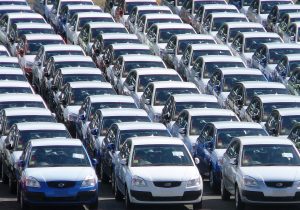 The stories of the coming apocalypse, especially in mainstream publications, are endless. The franchise system is outmoded. The car business needs disruption. Disruptors have arrived, and even more are coming. It will only be a matter of time until the end of the franchise system for vehicle sales.
The stories of the coming apocalypse, especially in mainstream publications, are endless. The franchise system is outmoded. The car business needs disruption. Disruptors have arrived, and even more are coming. It will only be a matter of time until the end of the franchise system for vehicle sales.
Nonsense!
The franchised dealer system has survived for over a century. Disruptors claim it has because of protectionist laws. That shows how little they understand the benefits of franchising car dealers. The system has survived because it works.
Originally it was set up so manufacturers could build a distribution network affordably. Manufacturers built cars and sold them to dealers. Dealers sold and serviced cars at dealerships they built and kept running with their own money.
Detractors of the dealer system suggest that dealers are no longer necessary. If that is so, why do the disruptors find the need to open dealerships they own? It seems dealerships are all right for the disruptors as long as they own them. And that is the fatal flaw of the disruptors’ theory.
Here's why.
Manufacturers and distributors have never succeeded in experiments in retailing mass market motor vehicles.
- Development of a nationwide retail distribution network requires the investment of billions of dollars. These dollars must be diverted from uses better suited to the core competencies of a manufacturer – design and manufacture of the most desirable vehicles possible.
- Manufacturing vehicles and selling them to dealers and selling them car by car to end users are two separate businesses. Each participant in the industry works best when it concentrates on what it does best. Manufacturers serve a different customer base than dealers. The manufacturers’ customers are dealers. Few in the public think about it, assuming that manufacturers simply consign vehicles to dealers, but dealers buy vehicles from manufacturers. Dealers then sell them to end users – dealers’ customers who buy the vehicles one by one.
- The compliance, regulatory, and legal issues of manufacturers differ from those affecting dealers. Both manufacturers and dealers must comply with general business laws. However, the regulatory atmosphere for manufacturers is geared to ensure that the vehicles they manufacture are safe for occupants, minimize pollution, and can be operated without danger to the public. Dealers are governed by different laws such as licensing, consumer protection, retail and finance compliance, and so on to protect consumers when they make their largest purchase of consumer goods.
- Manufacturers are national or multi-national giants. Dealers are mostly local businesses. Dealers compete most effectively by knowing their markets and their customers. That is not an area in which a multi-national industrial giant is effective.
The disruptors contend that they protect competition.
What competition? There is no intrabrand competition when a manufacturer owns all of its retail outlets. A manufacturer sets its price to end users and an end user pays that.
Detractors claim that independently owned dealers cost consumers money. That is another myth. When the manufacturer owns its own dealers, it must still pay for facilities and all operating expenses. To do that, it must invest millions per facility on which its shareholders expect a return. No one knows how to operate a dealership like an independent businessperson. Independent car dealers know the most cost effective methods of providing service to the customers, and they provide these efficiently based on investments of their own money in their businesses.
Disruptors like to claim dealers stifle innovation. Again, that is a myth. No business has been more adept than independent dealers at adapting to changes over the decades. Dealers have led every innovation in retailing. Dealers have led adapting to internet business. Regardless of the method of propulsion or how a vehicle will be operated, dealers will always respond to serve the customers’ wants and needs.
That is why dealers will always be important in the retail distribution of motor vehicles. No businesspeople have been more resilient in dealing with the challenges of a changing economy than car dealers. Dealers have embraced innovation. They have led the way in implementing changes to satisfy their customers. No businesspeople are more aware of the need to hire and keep employed top notch personnel to service customers, to satisfy customers, and to keep them coming back.
Dealers are committed to efficient and effective service to customers, and it is this commitment that will keep them in the forefront of retail distribution of motor vehicles.
